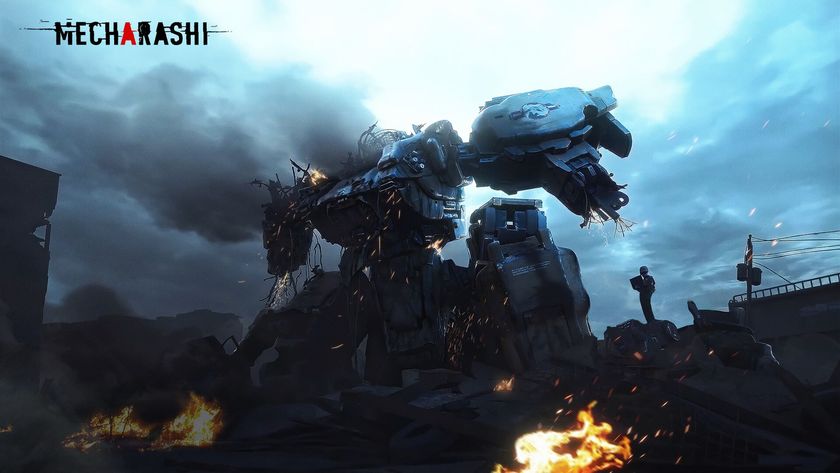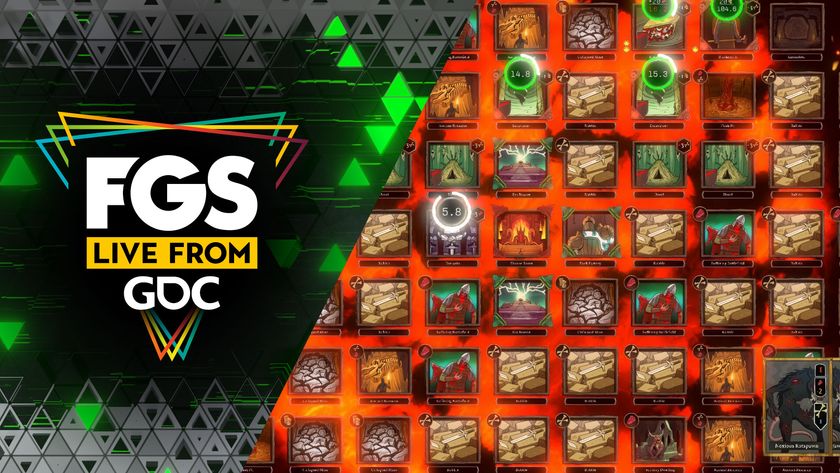Defunct Japanese developers we still miss
These will live forever in our hearts

Its a sad reality of this world that being good at something doesnt always make you successful. In the gaming industry, just because you make a beautiful, unique, trailblazing game doesnt mean it will sell more than a fraction of what it should. After the close of Tokyo Game Show, we decided to look at some of our favorite Japan-based developers that are no longer around, including entries both familiar and obscure. We start our tragic recollections with
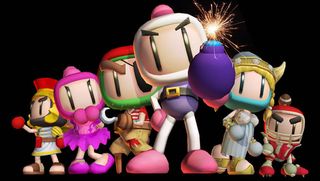
Hudson Soft
Famous for: Bomberman, Bonk, Mario Party
Its sad to see any great developer fade away, but its even more painful when it has a legacy that dates back to before the launch of the NES. One of the first companies to develop games for the original Nintendo home console, Hudson Soft got its start with Bomberman and Adventure Island making a huge splash with gamers in Japan and the US. The company also earned the love of the small user base for the TurboGrafx-16, a competitor to the SNES and Genesis that featured many Hudson games, including the Bonk series and Military Madness.
As the years went on Hudson stayed relevant with a resurgence of the Bomberman games online, as well as developing the Mario Party series with Nintendo. Hudsons end wasnt due to any financial failings, but instead by its stock being purchased by Konami. By the start of 2012 Hudson Soft was fully assumed into the Konami structure, ceasing to exist as a company. Many former Hudson Soft devs went on to form a new company, Nd Cube, and the team is sticking with what it knows, developing this years Mario Party 9.
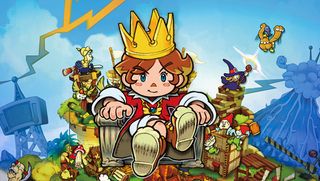
Cing
Famous for: Little Kings Story, Hotel Dusk
Cings story is about a developer burning too bright for too brief a time. Formed as a small, independent development studio, it worked on projects for publishers as wide-ranging as Nintendo, Capcom, and Tecmo. The company had a great run of puzzle titles on the DS, producing the smart detective adventure Hotel Dusk and island survival game Another Code (aka Trace Memory in the US).
By the late 2000s Cing was starting to show signs of trouble. Several of its games, including sequels to Hotel Dusk and Another Code, were localized in English, but only saw release in the US or Europe, but not both. Another troubling sign was that Cings most ambitious game, the well-liked Little Kings Story, was also met with the poor sales that happened for most third party games on the Wii. The company shut down in 2010, and though Little Kings Story is getting a second chance at life on the Vita, the remainder of Cing has moved on to new adventures.
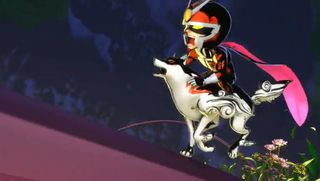
Clover Studios
Famous for: Okami, Viewtiful Joe
No doubt the prime example for this list, Clover was an independent studio funded by Capcom to create new franchises for the publisher. It was home to some of Capcoms most powerful creative forces, including Shinji Mikami (Resident Evil, Dino Crisis) and Hideki Kamiya (Devil May Cry). The group of developers formed officially to work on the cinematic platformer Viewtiful Joe, and would go on to create its sequel alongside the misunderstood God Hand and critically adored Okami.
2006 saw the release of Okami to incredibly strong reviews and weak sales, which, when coupled with the poor sales of God Hand, was the end for Clover. Capcom wanted to reintegrate the studio into its corporate structure, leading Mikami, Kamiya, and others to resign from Capcom. Despite the sad end, many gamers have come to appreciate the devs work following its demise, plus Clovers story has a happier epilogue than most on this list. Many of the key Clover staff, including Kamiya, Mikami, and Clover CEO Atsushi Inaba formed Platinum Games, which aims to maintain a similar dedication to quality and originality that Clover was built upon.

Team Silent
Famous for: Silent Hill
Silent Hills creation is about as murky as the existence of the fictional town itself. A collective of internal Konami developers that came together to create a new survival horror franchise for the PlayStation, the formation of this motley crew of creative types seems better suited for a 1980s comedy than making one of the scariest games ever. Despite some lack of faith by Konami, Silent Hill was a success, and a new internal development team was created.
The team went on to create three more sterling entries for the franchise, each one a haunting, introspective look at horror created from within. With such success, you might think Team Silent was cemented as one of Konamis chief teams. Instead, following the minor sales disappointment of Silent Hill 4, Konami disbanded Team Silent, moved the workers to different projects, and handed off development of SH to a series of western devs. Silent Hill fans had to watch the franchise flounder for the last five years under its new leadership, though they can take heart in knowing that many members of Team Silent have gone on to success outside Konami. That includes some heading to high profile developers like Grasshopper Manufacture, Sonys Japan studio and Kojima Productions.

Ignition Tokyo
Famous for: El Shaddai
If the tale of Clover made you sad and/or frustrated, get ready for another helping of bitter reality. Following the dissolution of Clover by Capcom, many ex-employees went on to reform as Platinum Games, but not all of them. Chief among them was Takeyasu Sawaki, an artist whose most famous work at Capcom included character designs for Devil May Cry and Okami. With the support of game publisher Ignition, Sawaki was ready to direct his first game, and as El Shaddai would prove, he dreamed big.
El Shaddai remains one of the most visually stunning games we can recall, an artistic tour de force that unfortunately was supported by average gameplay that couldnt match the arts creativity. After seeing merely the first screenshot the game seemed too beautiful to live, and sadly so was Sawakis development team. Ignition ended up disbanding the group and halting all internal development just as El Shaddai shipped to stores, dooming the potential franchise before it had even begun. At best, lets hope that these circumstances havent chased Sawaki away from game creation altogether.
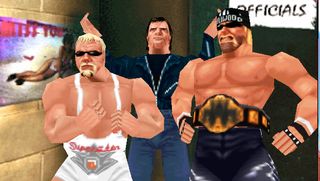
AKI Corporation
Famous for: N64 wrestling games
During the late 1990s in the US, pro wrestling was in a boom period bigger than the fake sport saw before or since. Stone Cold, Goldberg, The Rock and more were heroes to a whole new generations of fans, many of whom were gamers. And while the majority of wrestling games released in that era are horrendously awful, the developer known as AKI took sports entertainment to new heights, thanks to an surprisingly deep combat engine that fans loved in the US and Japan.
Starting with WCW vs nWo: World Tour, AKI made a series of wrestling games that focused on balanced controls, and it deeply understood the internal logic of sports entertainment as a whole, something fans couldn't get enough of. After a streak of N64 classics with WCW, WWF and Virtual Pro Wrestling in Japan, AKI tried to recreate its wrestling success with a couple of Def Jam fighting games on the GameCube that never really caught on. Eventually, AKI vanished and was rebranded "syn Sophia," now known mainly for creating games aimed at young girls, which is about as far from its wrestling heritage as it can get.
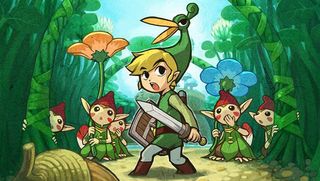
Flagship
Famous for: The Legend of Zelda: The Minish Cap
Even though the Legend of Zelda games are some of the most esteemed in the medium, but few outside of Nintendo have recreated the formula with any positive results. Capcom subsidiary Flagship was one of the first to pull it off, thanks to its founder Yoshiki Okamoto. He proposed making a collection of Zelda remakes to series creator Shigeru Miyamoto, though eventually that became two different, original games. Oracle of Seasons and Ages were the eventual Game Boy Color games Flagship released to widespread acclaim, though some gamers missed it since it came to the aging handheld near the end of its life.
A similar situation arose with Flagships Zelda classic, Minish Cap, when it premiered on the Game Boy Advance just as the DS was released and overshadowing it. Outside of those great additions to the Zelda franchise, Flagship also helped with several Capcom games made a couple of fun Kirby games. In 2007 Flagship was dissolved and reintegrated into Capcom, denying the world of more Zelda games that harkened to its 16-bit past. Okamoto subsequently left Capcom to form Game Republic, another company that had a promising start only to end with a whimper when it closed in 2011.
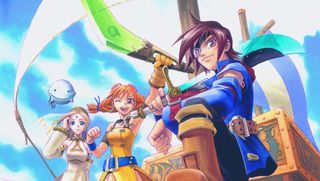
Too many Sega developers
Famous for: Rez, Jet Set Radio, Crazy Taxi, many others
Sega had always been supported by strong internal development teams, like AM2 (Virtua Fighter) and Sonic Team, and the former console maker further expanded its portfolio of developers after restructuring game creation around the launch of the Dreamcast. More than a half dozen teams were formed to make unique titles for the Dreamcast, including Amusement Vision, Smilebit, WoW, and United Game Artists.
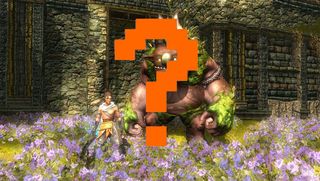
Who do you miss?
Are there any Japanese developers you long to see return that we didn't include? Please share your memories in the comments. Think of it as group therapy.
If you want more Japan-centric stories, check out all our Tokyo Game Show coverage and the best anime-related games.

Henry Gilbert is a former 12DOVE Editor, having spent seven years at the site helping to navigate our readers through the PS3 and Xbox 360 generation. Henry is now following another passion of his besides video games, working as the producer and podcast cohost of the popular Talking Simpsons and What a Cartoon podcasts.
